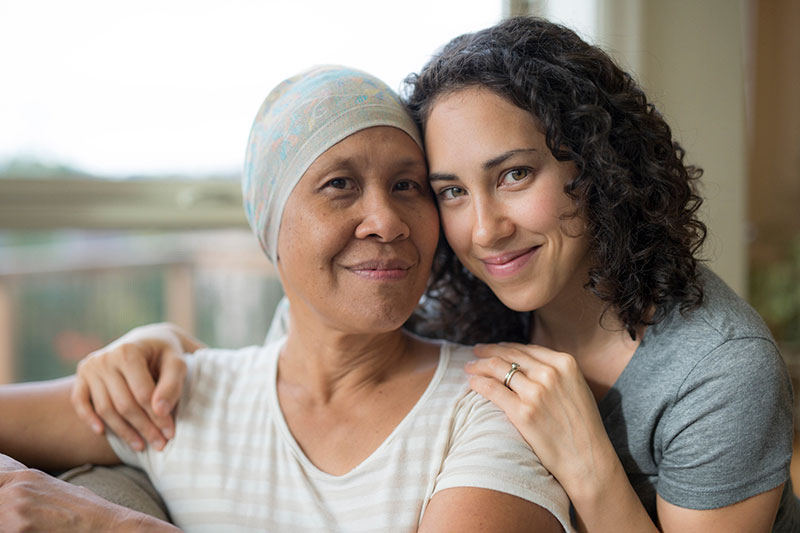
Home care services can help with cancer care in a number of key ways.
When a loved one receives a cancer diagnosis, it may feel as though everything is upended. That which was once a top concern pales when compared to the need to do anything you can to help the person you love through this unexpected journey.
If you’re not sure where you should even begin in your role as a cancer care provider, our senior care professionals are here to provide support. Take a breath, settle in with a cup of tea, and go through the recommendations below.
What Will the Person with Cancer Need?
Quite often, cancer treatments are given in outpatient settings rather than during a hospital stay. Because of this, transportation to and from treatments is one of the most important components of cancer care. In addition, the person will likely need:
- Help with symptom management. Chemo and other cancer treatments, as well as the cancer itself, can cause nausea and vomiting, diarrhea or constipation, exhaustion, changes in appetite, pain, and more. You can provide support by ensuring the person remains hydrated, communicating with the doctor about any concerns and implementing recommendations, and making light, healthy meals based on his/her tolerance level and preferences.
- Help with household chores. Having assistance with housekeeping, laundry, yardwork, trips to the market, and other errands is very often a great relief for a person with cancer.
- A healthcare liaison. Keeping tabs on all of the medical facets of cancer care can be complicated. See if the person would like you to go with him/her to doctors’ appointments to take down notes, ask questions, communicate information back to the medical team, etc.
- Someone to listen. Often, people tend to shy away from complicated conversations. For someone with cancer, having a person there to listen to the difficulties being faced, concerns for the future, and whatever else that comes to mind is very important. Your caring, non-judgmental presence might be the biggest gift you have to offer.
What Will YOU Need?
Taking care of yourself is very important while caring for someone with cancer to relieve stress and prevent depression and caregiver burnout. Make sure to specify ongoing, scheduled times away for interests that are comforting: reading, going for a walk, soaking in a warm bath, engaging in activities you enjoy, etc.
You will likewise require an outlet for any emotions that emerge during caregiving. Find a skilled counselor to meet with or a dependable friend, family member, or clergy member to talk to, write in a journal, or join a cancer care support group.
If you’re struggling to find time and energy to take care of yourself, Abby Senior Care can help. Our care providers are fully trained and experienced in caring for people with cancer and other chronic health conditions, and are available for as much or as little time as you need to step in while you step away.
Call us at 303-699-8840 any time for more cancer care information or to make arrangements for a free in-home consultation to learn more about our overnight elderly care in Denver, CO and the surrounding areas.
